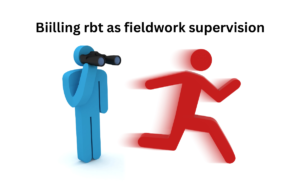Privilege refers to the advantages and benefits that individuals or groups receive based on certain characteristics, such as socioeconomic status, race, gender, or other factors. These advantages are often unearned and can influence access to resources, opportunities, and rights within society. The concept of privilege is important to understand because it highlights the systemic inequalities that exist in various aspects of life.
Recognizing privilege allows individuals to be more aware of the disparities faced by marginalized groups and work towards greater equality. For example, those with certain Advantages may have access to better education, healthcare, and job opportunities. Acknowledging privilege is a step toward creating a more just and equitable society where all individuals have the same opportunities to succeed.
What is the meaning of privilege in a social context?
In a social context, Advantage refers to the unearned advantages or benefits that individuals or groups receive based on characteristics such as race, gender, socioeconomic status, or nationality. These advantages are often invisible to those who possess them but can significantly impact access to resources and opportunities. People with certain Advantages may experience fewer obstacles in their daily lives compared to those without such Advantages.
Understanding Advantage is crucial for addressing social inequalities and fostering inclusivity. It highlights the disparities that exist in society, where individuals from Advantaged groups may have greater access to education, healthcare, or employment. By acknowledging Advantage, society can work towards creating fairer systems where opportunities are more equally distributed among all people.
How does privilege affect individuals in different societies?
Advantage can significantly shape individuals’ experiences in various societies, often determining their access to resources, opportunities, and social mobility. In some cultures, individuals born into higher socioeconomic classes or certain racial or ethnic groups may benefit from better education, healthcare, and job prospects. This systemic advantage can lead to a cycle of prosperity, while those without similar Advantages face barriers that can limit their potential and perpetuate inequality.
The disparity between different groups can result in social tensions and marginalization. Those with Advantage may not always be aware of the advantages they hold, leading to an imbalance in how society treats individuals based on their identity. Addressing this issue requires both recognition of these disparities and a commitment to creating more equitable systems where everyone, regardless of their background, has the opportunity to thrive.
Can Advantage be inherited or earned?
Advantage can often be inherited, as individuals born into families with financial stability, social connections, or historical advantages may continue to benefit from these factors throughout their lives. This inherited Advantage can create a foundation that allows individuals access to better education, career opportunities, and social standing. In many cases, the advantages of one generation can be passed down to the next, reinforcing cycles of inequality.
Advantage can also be earned, although the pathways to earning it are often influenced by factors like education, social networks, and opportunities. While individuals may work hard to achieve success, their ability to access resources and climb the social ladder can still be impacted by their race, gender, or socioeconomic status. Therefore, even those who earn their advantages may still face challenges that are rooted in the broader societal structures that define Advantage.
What are examples of privilege in the workplace?
| Type of Advantage | Description |
| Racial Advantage | Individuals from majority racial or ethnic backgrounds may experience fewer barriers to advancement or bias in hiring. |
| Gender Advantage | Men, particularly cisgender men, often have more opportunities for advancement and higher pay compared to women. |
| Class Advantage | Those from wealthier backgrounds may have access to better educational opportunities, networks, and job referrals. |
| Age Advantage | Younger individuals may receive more opportunities in fast-moving industries, while older employees may face bias. |
| Disability Advantage | Employees without disabilities may not face challenges like physical accommodations or work restrictions. |
| Sexual Orientation Advantage | Heterosexual employees may experience fewer barriers to acceptance and less risk of discrimination. |
| Language Advantage | Those who speak the dominant language fluently may have an advantage in communication, networking, and job access. |
| Educational Advantage | Individuals with degrees from prestigious institutions may have better access to higher-paying roles or promotions. |
| Physical Appearance Advantage | People who conform to societal beauty standards may be more likely to receive positive attention and promotions. |
| Religious Advantage | People who practice the dominant religion may face fewer challenges accommodating their religious practices at work. |
| Citizenship Advantage | Citizens may have greater job security and opportunities compared to non-citizens or immigrants with work restrictions. |
| Network Advantage | Individuals with established professional connections may have easier access to job opportunities and career growth. |
| Parental Advantage | Parents, particularly those with children, may have access to more family-friendly policies or benefits in the workplace. |
| Body Size Advantage | Employees who fit within societal ideals of body size may face less bias in hiring or workplace treatment. |
| Geographic Advantage | Employees living in major metropolitan areas may have more job opportunities and career advancement compared to rural areas. |
How does Advantage impact access to opportunities?
Privilege can significantly shape an individual’s access to various opportunities, often providing them with advantages in areas like education, employment, and career progression. Those who benefit from Advantage may have fewer barriers to success, such as access to high-quality education, influential networks, or bias-free hiring processes. This can result in more job offers, higher wages, and faster promotions for some individuals, simply because of the circumstances they were born into or their societal position.
Individuals who do not benefit from these advantages may face systemic obstacles that make it harder to access opportunities. Discrimination, unconscious bias, and societal stereotypes can limit their chances for advancement, regardless of their capabilities or qualifications. These inequalities perpetuate a cycle where certain groups are continually disadvantaged, leading to disparities in wealth, power, and social mobility.
How can individuals become aware of their own Advantage?
Becoming aware of one’s Advantage often begins with self-reflection and education. Individuals can learn about the various forms of Advantage by reading books, attending workshops, or engaging in conversations about social inequalities and biases. This knowledge helps individuals identify how their life experiences may differ from others who face systemic disadvantages, whether based on race, gender, socio-economic status, or other factors.
Listening to the experiences of marginalized groups is crucial in gaining a deeper understanding of privilege. By empathizing with others’ challenges and acknowledging the unearned advantages one may have, individuals can start to recognize how privilege manifests in their daily lives. This awareness is the first step toward challenging inequality and fostering a more inclusive environment.
Recognizing one’s privilege is a vital step in addressing social inequalities. It involves both self-awareness and understanding the broader context of systemic advantages. By becoming more conscious of these factors, individuals can take meaningful actions toward equality and inclusion.
For more updates visit our website.









